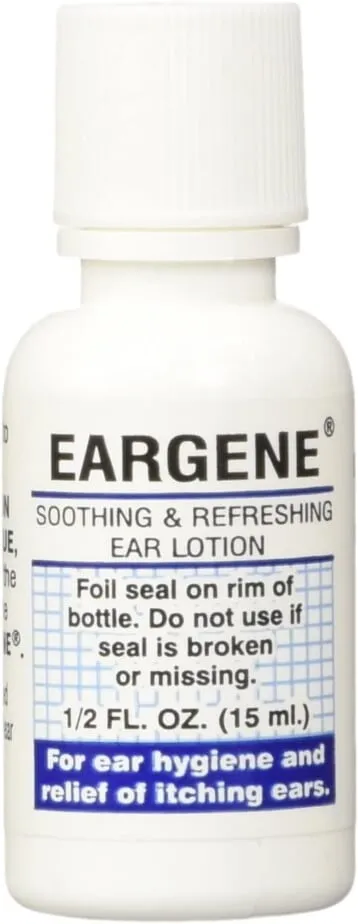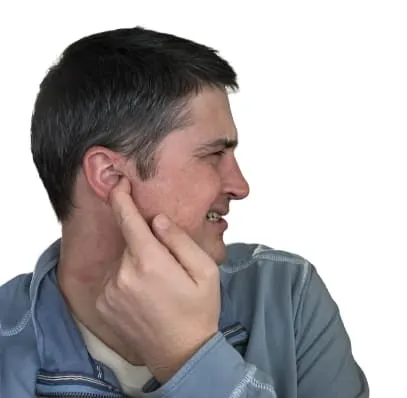If you’ve ever experienced an itchy ear canal while wearing hearing aids, you know how uncomfortable and distracting it can be. Itchiness not only causes irritation but can also make you less likely to wear your hearing aids consistently—impacting your hearing health. As an audiologist, I often help patients identify the cause and find lasting relief. This guide will explain the most common causes of itchy ears, treatments that actually work, and prevention tips to keep your ears comfortable.
Top 3 Causes of Itchy Ear Canals
In most cases, itchy ears are caused by dry skin, earwax buildup, or fungal infections. Let’s explore each in detail.
1. Dry Skin
Dry skin inside the ear canal can cause persistent itching. Common triggers include cold weather, low humidity, and over-cleaning the ear. Many people unknowingly make the problem worse by inserting objects like Q-tips, bobby pins, or even car keys—which can scratch the skin and increase infection risk.
Solution: Moisturizing eardrops such as MiraCell or Eargene can help rehydrate the ear canal and relieve itching.

2. Fungal Infection (Otomycosis)
Otomycosis is a fungal infection in the ear canal that can cause itching, redness, flaky skin, and sometimes discharge. It’s more common in warm, humid climates or after prolonged moisture exposure (like swimming).
Solution: Only a medical professional can diagnose and treat otomycosis. Prescription antifungal drops are usually required, and early treatment can prevent complications.
3. Earwax Buildup
Excess earwax can trap moisture, irritate the ear canal, and cause itching. While some wax is normal and protective, excessive buildup can be problematic—especially for hearing aid wearers.
Solution: For safe removal, see an audiologist or ENT. At-home options like Earwax MD can help soften and dissolve wax. A simple otoscope camera can help you check for buildup before it becomes a problem.
Diagnosis & Professional Care
If itching persists for more than a few days or is accompanied by pain, swelling, or discharge, seek professional evaluation. An audiologist or ENT can:
- Examine your ear canal using an otoscope
- Determine whether the cause is fungal, bacterial, wax-related, or skin-related
- Provide safe ear cleaning or prescribe medication as needed
Prevention Tips for Itchy Ears
Keeping your ears and hearing aids clean is the best prevention strategy. Here’s what I recommend:
- Clean your hearing aids daily with a gentle hearing aid cleaning solution or soft, damp cloth.
- Avoid inserting cotton swabs or sharp objects into your ears.
- Use hearing aid–safe eardrops to keep skin moisturized.
- Keep ears dry after swimming or showering—use a towel or a hair dryer on a cool setting.
- Store hearing aids in a drying box overnight to prevent moisture buildup.
FAQs About Itchy Ears & Hearing Aids
Can hearing aids cause itchy ears?
Yes—hearing aids can trap moisture and wax, leading to irritation. However, proper cleaning and moisture control usually solve the problem.
When should I see a doctor?
If itching lasts longer than a few days, worsens, or is accompanied by pain or discharge, see an audiologist or ENT.
Are itchy ears a sign of an allergy to my hearing aids?
Rarely, yes. Some people are allergic to certain earmold materials. Switching materials or using a coating can help.
Conclusion
Itchy ear canals are a common issue for hearing aid users, but they don’t have to disrupt your daily life. By understanding whether the cause is dry skin, fungal infection, or earwax buildup—and taking preventive measures—you can enjoy your hearing aids without discomfort.
Itchiness often comes from dry skin, wax buildup, or allergic reactions to materials. For more on how to treat hearing-related issues while exploring broader management options, check out our Guide to Sensorineural Hearing Loss Treatment Options.

